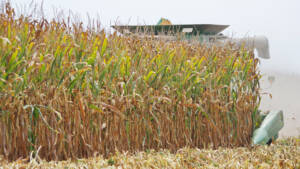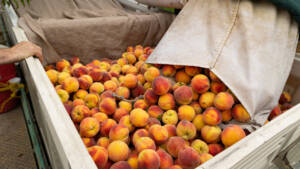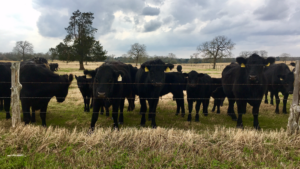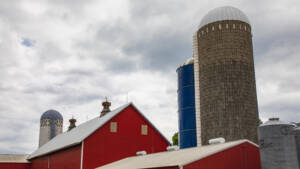
Farm Bill

Issue Overview
The farm bill is a critical tool for ensuring our nation’s food supply remains secure. Funding for this comprehensive package, which could more accurately be called a food and farm bill, includes risk management tools for farmers, access to nutrition for low-income families, conservation programs and investments in agricultural research.
No one buys insurance for the good times, and similarly, farm bill programs provide critical tools to help farmers and ranchers manage risk. Farm programs are written to provide a basic level of protection to help offset bad economic times and severe weather. The 2018 farm bill brought certainty to farm and ranch families through crop insurance, improved risk management programs and support for beginning farmers and ranchers, while also providing much-needed funding for trade development and ag research. The entire package was budget neutral and received strong bipartisan support.
The farm bill is reauthorized every five years. Congress passed an extension of the 2018 farm bill, which has now expired. Congress must pass a modernized farm bill in order to fully protect our food, land and livelihoods.
Farm Bill Priorities
Farming is a difficult and risky business, yet critical to the well-being of our nation. It’s often stated that food security is national security. Few pieces of legislation are more significant than the farm bill when it comes to ensuring our food system is secure. We urge lawmakers to recognize this significance as they consider updating and improving the farm bill.
We support the following principles to guide development of programs in the next farm bill:
- Increase baseline funding commitments to farm programs;
- Maintain a unified farm bill which includes nutrition programs and farm programs together; and
- Prioritize funding for risk management tools which include both federal crop insurance and commodity programs.
The food and farm bill has been a bipartisan effort in the past. The farm bill presents an important opportunity for lawmakers to rise above partisanship and work together again to pass legislation that protects food security for all Americans and the future success of our farmers and ranchers.
The farm bill is one of the mightiest tools to protect our nation’s food supply and strengthen agriculture.
- Zippy Duvall, AFBF President
Get the Facts: How Does the Farm Bill Matter for Everyone?
- Food Security: America’s public investment in agriculture through farm bill programs helps secure our domestic food supply and keep our country strong while consumers get the benefits of high-quality, affordable food.
- Jobs: The food and agriculture industry supports nearly 46.2 million U.S. jobs (that’s more than 14 percent of U.S. employment) and contributes more than $1 trillion to U.S. gross domestic product.
- Conservation: The farm bill’s investment in ag research and conservation programs are critical to ensuring the productivity and sustainability in our farms and domestic food supply.
- Risk Management: We all depend on the success of American agriculture so it’s important for America’s farmers and ranchers to be supported by strong farm programs as they face down weather disasters, high supply costs and inflationary pressures. Managing risk is critical to keep food on our tables.
- Addressing Hunger: The farm bill includes nutrition programs intended to ensure the most vulnerable among us have access to healthy, affordable food.
On the Ground
Take Action
Farmers and ranchers have a golden opportunity to stress the importance of farm policy with their state and federal lawmakers, as well as the public. Many people are unaware of the benefits of the farm bill, and few are better-positioned than farmers and ranchers to provide a firsthand account.
Additional Resources
- The latest farm bill related content from news coverage to Market Intel analysis
- Farm bill resources in-depth
- 2024 Farm Bill Policy Priorities
RELATED | MARKET INTEL

Farm Bill Math Updated Again in May CBO Baseline
May 16, 2023
READ MORE

The ‘Others’ of The Farm Bill – Titles Outside of the ‘Big 4’
Mar 9, 2023
READ MORE

Farm Bill Math Updated in New CBO Baseline
Feb 17, 2023
READ MORE

Overview of Title II Conservation Programs in the Farm Bill
Jan 13, 2023
READ MORE

Farm Bill Title I Commodity Programs – ARC, PLC and Marketing Assistance Loans
Dec 22, 2022
READ MORE

Specialty Crop Considerations for the Farm Bill
Nov 30, 2022
READ MORE

Livestock and the Farm Bill
Oct 17, 2022
READ MORE

Revisiting Agricultural Trade and Food Assistance Programs in the Farm Bill
Oct 12, 2022
READ MORE

Revisiting Disaster Programs in the Farm Bill
Oct 4, 2022
READ MORE

Overview of Dairy Programs in the Farm Bill
Sep 27, 2022
READ MORE

What is the (Food and) Farm Bill and Why Does It Matter?
Jul 20, 2022
READ MORE
